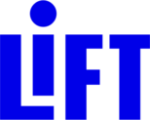Drexel is often hailed by students, alumni and parents for its cooperative education program—and for good reason. It allows students to receive valuable hands-on learning opportunities in a professional setting of their choice. But, one instructor at Drexel is engaging her students in another type of experiential learning—one that ties academia with local civic engagement.
Students in Cynthia Rickards’ fall term sociology class (SOC 380: Culture of Poverty – Service Learning) spent half the course in the classroom where they explored the history, controversy and repercussions of a culture of poverty. They also learned of some alarming statistics—the nation’s official poverty rate is now 15.1 percent with 46 million people living in poverty. Students spend the other half of the course at the Philadelphia chapter of LIFT, a non-profit movement to combat poverty and expand opportunity for all people in the United States. LIFT currently runs centers staffed by trained volunteers in Boston, Chicago, New York, Philadelphia, and Washington, DC, to serve low-income individuals and families. The Philadelphia chapter uses community-based resource centers to help local West Philadelphians break the cycle of poverty by finding jobs, benefits, homes and more.
“As college students, you don’t always get to see the realization of what you’re talking about in class,” says Ashley Devine, a mathematics and sociology major.
LIFT harnesses the resources and knowledge of college students to empower individuals in the community to help break the cycle of poverty. The organization teaches necessary skills such as building résumés, performing mock interviews, facilitating job searches, applying for housing and public benefits and filing taxes. It is especially helpful for the many people who don’t have computers or Internet access.
With the help of Drexel students, in 2011 LIFT Philadelphia secured 125 job placements, filed 350 tax returns, worked on 1,300 resumes and cover letters, and made 15 housing placements for community members—all completely free of charge.
“When I was working with people at LIFT, there was nothing intrinsically wrong with them, but it was a structure that set them up to fail,” says Devine. “People are trying. It’s not as if they’re waiting for things to come to them.”
Rickards asked her students to demonstrate their course learning in any format for their final presentation, which was held on Friday, December 9. It was clear that the significance of community was a common theme expressed in all presentations.
Chloe Fells, an anthropology major, documented her work with LIFT through a photo collage, featuring photos taken around LIFT’s West Philadelphia office on 5548 Chestnut Street. See her images on Drexel’s Flickr page.
“People came to [West Philadelphia] neighborhoods for a reason,” says Fells. Then all the businesses left and these people can’t. LIFT is a symbol of ‘yes, we’re going to help you.’”
Other projects included a mask composed of pictures of the clients at LIFT, a visual representation of all the services that LIFT provides for Philadelphians, as well as a brochure promoting LIFT for the representatives to take back and utilize for the center.
Nirali Patel, a biological studies major, is a Drexel Community Scholar for the Lindy Center for Civic Engagement and liaison between Drexel and LIFT. Patel, who has personally assisted clients with applying for housing, benefits, tax returns and resume critiques, said volunteering at LIFT is a different kind of volunteer opportunity.
“I’ve done a variety of different volunteer opportunities, including shelters and environmental groups, and those are very important. But this is the first one that actually helps to give clients the skills they need,” says Patel. “I’m making a direct impact, what I’m doing for them will help them to be self-sufficient.”
Patel also started a local chapter of LIFT on Drexel’s campus that was recognized this year. To learn more about volunteering, contact Nirali Patel at [email protected].
To learn more about the LIFT Philadelphia chapter, click here.
To read the Philadelphia Inquirer’s recent coverage of the LIFT program, click here.
–Stephanie Takach, University Communications
